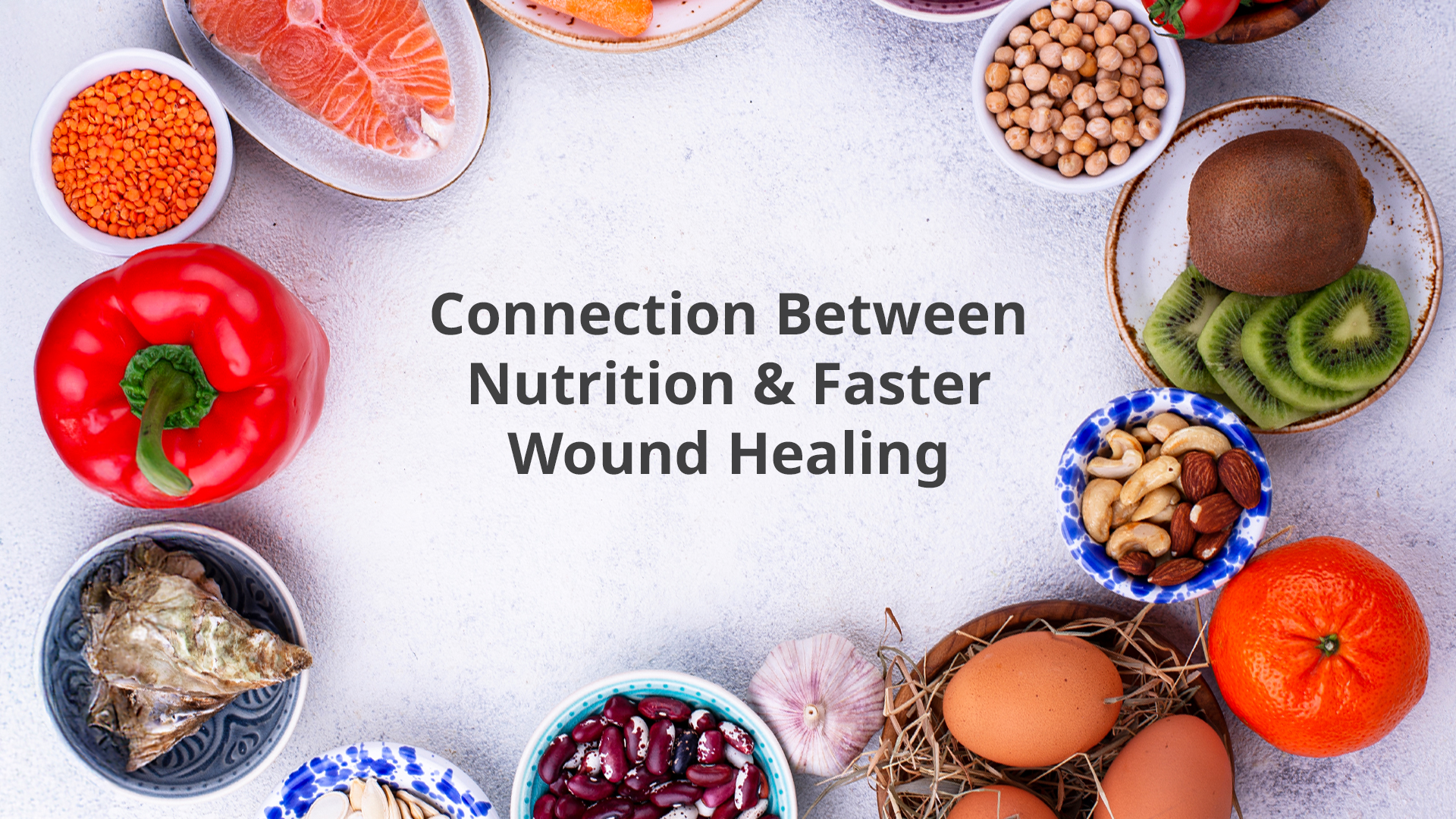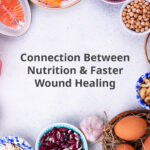

When it comes to wound healing, proper nutrition plays a critical role. The body requires essential nutrients to repair damaged tissue, fight infections, and promote new cell growth. Without the right balance of vitamins, minerals, and proteins, the healing process can slow down, increasing the risk of complications. Understanding how nutrition supports wound recovery can help ensure faster and more effective healing.
Why Nutrition Matters for Wound Healing
When the skin is injured—whether from a cut, burn, surgery, or chronic wound—the body immediately begins working to repair the damage. This involves several processes, including inflammation, tissue regeneration, and collagen production.
For these processes to function efficiently, the body needs an adequate supply of nutrients to:
 Promote new cell formation
Promote new cell formation Strengthen skin and connective tissue
Strengthen skin and connective tissue Reduce inflammation and fight infection
Reduce inflammation and fight infection Support collagen production for faster healing
Support collagen production for faster healing
A diet lacking essential nutrients can slow recovery, increase infection risk, and even lead to chronic wounds that fail to heal properly.
Key Nutrients for Faster Wound Healing
 Protein: The Building Block of Tissue Repair
Protein: The Building Block of Tissue Repair
Protein is essential for new skin and muscle formation. Wounds require extra protein to rebuild damaged tissue and prevent muscle loss during the healing process.
- Good sources: Lean meats, fish, eggs, dairy, legumes, nuts, and seeds
 Vitamin C: Boosts Collagen & Fights Infection
Vitamin C: Boosts Collagen & Fights Infection
Vitamin C is crucial for collagen production, which helps wounds close and strengthens new tissue. It also supports the immune system in preventing infections.
- Good sources: Citrus fruits, strawberries, bell peppers, kiwi, and leafy greens
 Zinc: Speeds Up Skin Repair
Zinc: Speeds Up Skin Repair
Zinc plays a major role in cell growth and immune function, making it vital for faster wound healing. A deficiency can slow tissue regeneration and increase inflammation.
- Good sources: Shellfish, beef, poultry, nuts, seeds, and whole grains
 Vitamin A: Helps Skin & Tissue Regeneration
Vitamin A: Helps Skin & Tissue Regeneration
Vitamin A stimulates skin cell growth, helping wounds heal more efficiently. It also strengthens the immune response to fight off harmful bacteria.
- Good sources: Carrots, sweet potatoes, spinach, liver, and dairy products
 Iron: Supports Oxygen Delivery to Wounds
Iron: Supports Oxygen Delivery to Wounds
Iron helps red blood cells transport oxygen to the wound site, which is essential for new cell formation and healing. Low iron levels can delay the healing process.
- Good sources: Red meat, beans, ntils, spinach, and fortified cereals
 Omega-3 Fatty Acids: Reduces Inflammation
Omega-3 Fatty Acids: Reduces Inflammation
Chronic inflammation can slow healing. Omega-3s help reduce excessive inflammation, creating a better environment for tissue repair.
- Good sources: Fatty fish (salmon, mackerel), flaxseeds, walnuts, and chia seeds
 Hydration: The Forgotten Healing Factor
Hydration: The Forgotten Healing Factor
Water is crucial for circulating nutrients, removing waste, and keeping the skin hydrated. Dehydration can slow down the body’s ability to regenerate new tissue.
- Best sources: Water, herbal teas, broth-based soups, and hydrating fruits (watermelon, cucumber, oranges)
What to Avoid for Better Wound Healing
Excess Sugar & Processed Foods
- High sugar levels can lead to inflammation and weakened immune function, slowing the healing process.
Alcohol & Caffeine
- These can dehydrate the body and interfere with nutrient absorption, delaying recovery.
 Highly Processed & Fried Foods
Highly Processed & Fried Foods
- These foods can increase inflammation and oxidative stress, making it harder for wounds to heal properly.
Supporting Wound Healing with the Right Nutrition & Wound Care
In addition to eating a nutrient-rich diet, using high-quality wound dressings can further enhance healing and protect wounds from infection. By combining proper nutrition with advanced wound care, you can give your body the best chance to heal quickly and effectively. Whether recovering from minor cuts, surgical wounds, burns, or chronic wounds, making smart dietary choices plays a crucial role in faster, stronger healing.
The post The Connection Between Nutrition & Faster Wound Healing appeared first on Borok Times.



